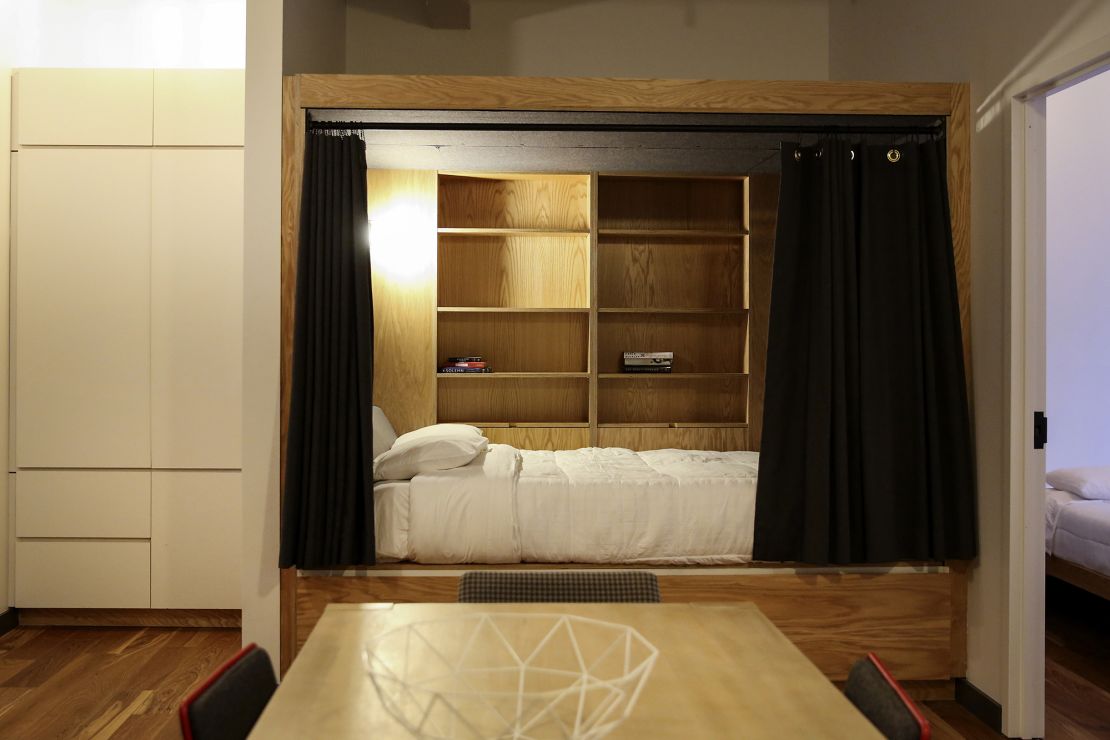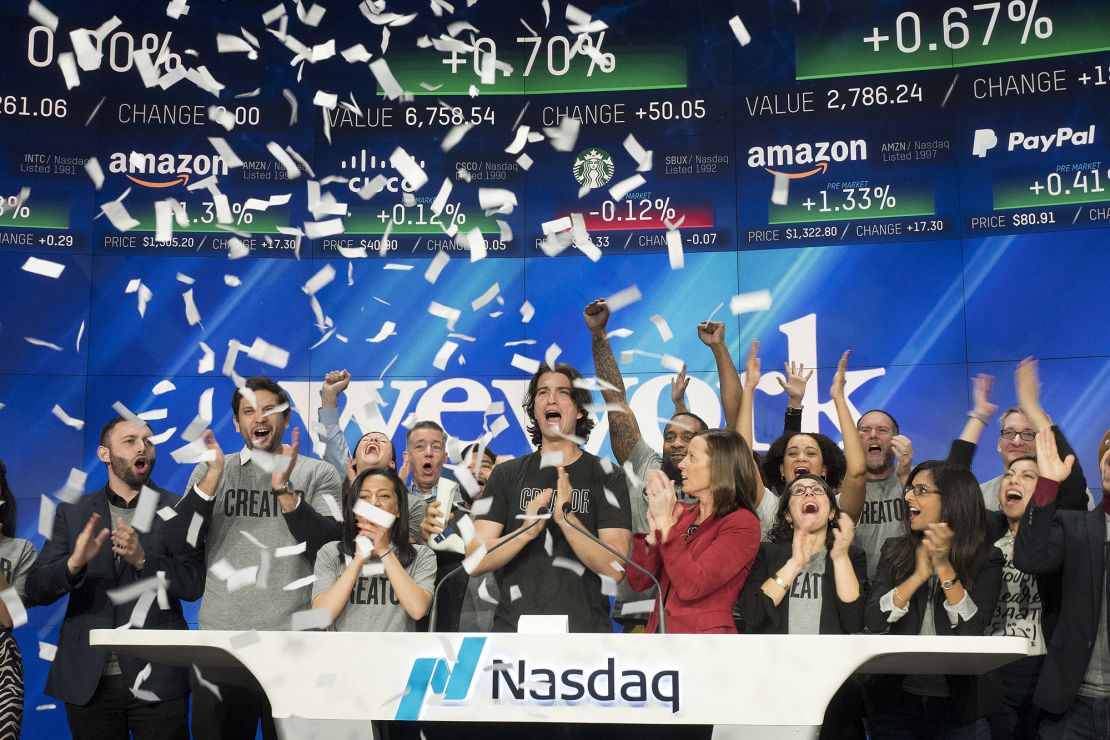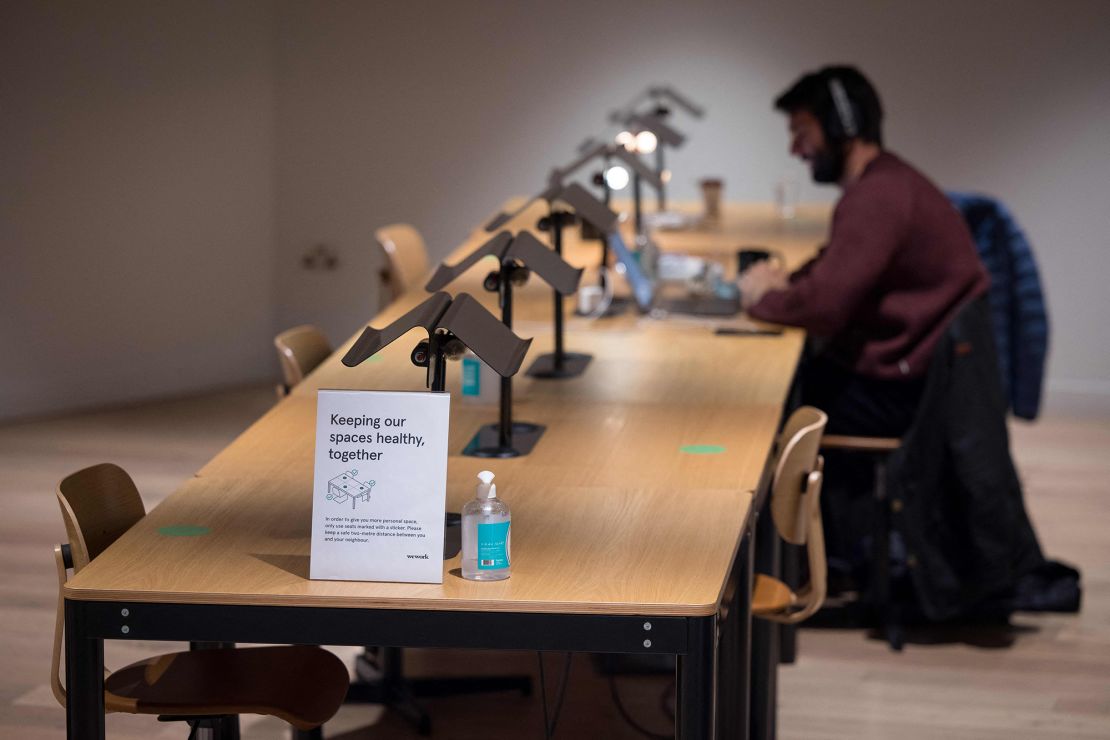WeWork officially filed for bankruptcy this week, a seemingly inevitable development for the coworking startup which once promised to revolutionize office work but has been slowly unraveling for years.
Co-founder Adam Neumann’s well-documented excesses during the early days of WeWork have already inspired a best-selling book and a star-studded miniseries. Endlessly charismatic, Neumann sold his vision of building community and bucking the old-school office culture to investors, who poured billions into his mission to “elevate the world’s consciousness,” as he often said. The startup rode the wave of the venture capital-backed free money era and saw its valuation peak at some $47 billion before it all came crashing down.
Neumann was eventually ousted in 2019 but walked away with a multi-million-dollar golden parachute and is now reportedly working on funding a new pseudo-real estate startup.
But other people were badly bruised by the company’s downfall. Legendary SoftBank investor Masayoshi Son bled billions trying to prop up WeWork, all while suffering untold reputational damage. And many early WeWork employees, who worked at lower salaries because they were given stock options, ended up with nothing.
The American tech sector over the years has been built on many myths, including the idea that founders are visionary geniuses who can foresee key trends years ahead of time. WeWork’s wild rise and fall is the latest high-profile incident to shatter that myth.
Here is a look at four of the wildest moments from WeWork’s rise, according to the company’s statements and a best-seller about the company.
Neumann had a penchant for pot, many former colleagues have said, and seemed to especially like to partake in marijuana while riding on private jets.
In the summer of 2019, Neumann and friends were smoking weed while zipping across the Atlantic Ocean in a Gulfstream G650 private jet en route to Israel. After the group landed, the flight crew apparently found “a sizable chunk of the drug stuffed in a cereal box for the return flight,” the Wall Street Journal reported, citing people familiar with the incident. The jet’s owner recalled the plane due to this finding, worried about the consequences of trans-border marijuana transport, leaving Neumann to find his own transport back to New York.
Neumann and his inner circle would also leave private planes caked in vomit, reporters Eliot Brown and Maureen Farrell wrote in their chronicle of the company, “The Cult of We: WeWork, Adam Neumann, and the Great Startup Delusion.” In one instance when Neumann was flying a private jet, the marijuana smoke was so thick that cabin crew members working on the plane had to put on their oxygen masks, according to the book.
Mixing layoffs and tequila
Neumann also had a taste for tequila and saw no issue imbibing in the office. (Part of WeWork’s push to appeal to millennials included free-flowing beer and open bars set up within its coworking outposts.)
But sometimes alcohol and partying were mixed with work in thoughtless ways. One report said that just weeks after Neumann fired some 7% of his staff in 2016, he addressed the cost-cutting efforts during a somber all-hands meeting, saying it was tough but necessary and the company would be better because of it. He then, however, had employees carrying trays of plastic shot glasses filled with tequila enter the room and soon after had Darryl McDaniels of hip-hop group Run-DMC come out and play a set for the staff as some were still digesting the news.
WeGrow, WeLive and other aggressive side projects
WeWork at one point also decided to take on reinventing childhood education and the housing market.
The company launched a primary school for children in pre-kindergarten through fourth grade in the fall of 2018. The school, dubbed “WeGrow,” was spearheaded by Adam Neumann’s wife, Rebekah, and had the mission “to unleash every human’s superpowers,” the company stated. The school’s tuition started at $36,000. In addition to the traditional curriculum, children were also taught yoga, meditation and farming.
WeWork also launched a co-living experiment in New York City dubbed “WeLive,” which rented out what were essentially hip dorm rooms with loads of amenities to young professionals.

The company eventually shuttered the school and disentangled itself from its housing ventures.
The beginning of the end can perhaps be traced back to WeWork’s first attempt to go public back in 2019.
The company filed its S-1 form (essentially a registration form for companies seeking to go public) in August 2019. Within six weeks of the filing, Neuman was ousted as chief executive.
The inner workings of the then-privately held company were revealed in that S-1 form. In addition to exposing larger-than-expected losses and raising major questions about WeWork’s path to profitability, the filing also brought to light some of the now-infamous conflicts of interest with Neumann’s management.

Perhaps one of the most glaring examples of this from the form was the revelation that Neumann and his founding partner registered a trademark on the use of the word “we” and then went back and charged the company nearly $6 million for the commercial use of the word as part of its rebranding.
The post-Neumann era and the pandemic
In a statement earlier this week, Neumann called news of WeWork’s bankruptcy “disappointing.” But he expressed hope for the company’s future even after a bankruptcy. “I believe that, with the right strategy and team, a reorganization will enable WeWork to emerge successfully,” he said in a statement.

But even after Neumann’s departure, it has been hard for WeWork to turn the ship around.
A major reason for this is that the Covid-19 pandemic emerged just months after Neumann was booted from the company, dealing an unexpected new blow to WeWork’s core business of bringing people together in coworking spaces.
And even years into the pandemic, many office workers have grown accustomed to remote work and are pushing back at being asked to go into the office at all — leaving a glut of empty offices across major American cities.
Read the full article here